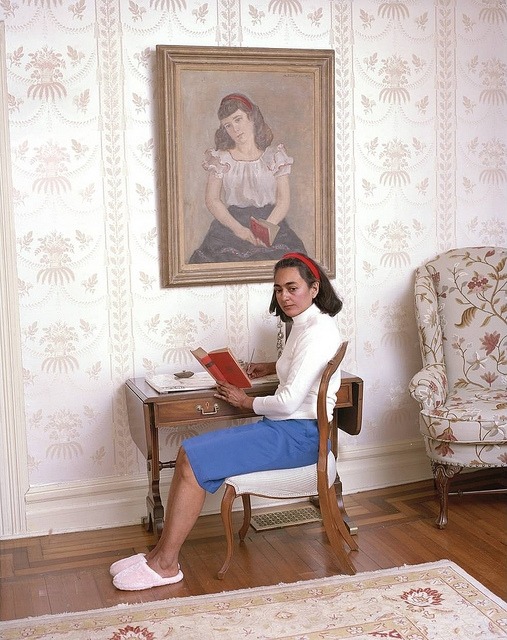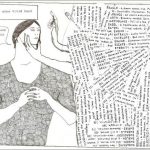EVERYTHING YOU NEED TO KNOW ABOUT LITERARY SUBMISSIONS
“Keep improving the things you’ve written and with persistence, you’ll eventually be published.”
Literary magazines publish a variety of pieces. Some focus on short stories, creative nonfiction, and poetry, while other publications may favor personal essays or provocative pieces on political and cultural issues. Being published in a literary magazine can be a necessary first step to attracting agents and gaining an audience for you and your work. Whatever your writing style, there is a place for your work to be shared with the public! Before you can read your work in print, you must go through the submission process. If you have a relationship with an editor, by all means, submit to him/her directly. If you don’t have a specific connection to a literary magazine, you’ll have to submit through contests or the magazine’s submission period. For every writer, this can be an unpleasant task. No one wants to be rejected by an editor. Before you submit your latest masterpiece, here are some tips on how to make your work stand out from the slush pile!
Find the right magazine for your work
Editors are constantly inundated with submissions and cover letters. They must quickly decide what works and what doesn’t for their publication. Do not submit to a magazine that you have not read (and liked). As a writer, it’s your job to familiarize yourself with the magazine’s style, themes, and overall audience. It’s important to consider the following questions before submitting your work:
- Does the magazine’s work appeal to you?
- Is your work a good fit for the publication?
- Will the editors find value in your contribution?
Follow the Submission Guidelines
Once you’ve found a magazine that publishes the type of work you write, you should adhere to their guidelines. For example, know the maximum word count or the format in which the editor would like to receive work. If an editor is receiving (and ultimately, reading!) hundreds of submissions, simply following directions can make a huge difference. Many magazines have limited reading periods throughout the year so check these dates in advance to be prepared.
Kate Jenkins, Editor-in-Chief at The Intentional, is constantly searching for good work to share with her readers.
“I think it’s important for writers to know that there’s a lot that goes into a decision about what we accept – and a much of it has nothing to do with the writer’s ability. The issue has to come together a certain way. And obviously, we have our own sense of taste – which is why it’s so important to read the particular magazine you’re submitting to, to make sure it’s a good fit. I read excellent work in other magazines all the time that, while I can appreciate it, I know it’s just not the kind of thing we do.”
Be Original
Jake Zucker, Assistant Editor at Electric Literature’s Recommended Reading says, “descriptions of the mechanics of a situation—be they a familiar or professional hierarchy—are almost always terribly, terribly dull.” Don’t be dull. Thrive to submit work that explores your creativity. Avoid stereotypical characters and cliche plots. Magazines are looking for originality and vivid imagery, not repetitive submissions.
Proofread
This seems like a no-brainer, yet submissions often arrive with basic spelling and grammatical errors. Read your work thoroughly and make sure it’s free of errors. Ideally, give your work to another reader to review before you submit it. A typo can be forgiven, however, multiple mistakes can leave a horrible first impression on editors.
Remember, editors are writers
Literary magazine editors are often writers, too! They can sympathize and fully comprehend the submission process. They also realize writers often need the time to hone their craft. If your piece is rejected, use that as motivation to your improve your writing skills.
“We’ve got to give ourselves time to develop as writers, and I think sometimes that means putting your head down and not submitting for a while, so that you can focus on the work itself,” says Kate.
“Sometimes I get angry letters from people who have been rejected by us and by other publications multiple times, and that’s the advice I have to give them: it’s a sign that you just need to spend more time writing.”
It can be discouraging to receive rejection letters, but keep going. If an editor offers you some feedback when they respond to your submission, do your best to receive the criticism. If you receive a personal rejection note from an editor, write them back a thank you and follow up with them directly when you submit another piece. Remember the literary world is small and one rejection is never a reason to burn a bridge. Keep improving the things you’ve written and with persistence, you’ll eventually be published.
Check out the following literary submissions resources in NYFA Source:
A Public Space is a nonprofit quarterly literary magazine based in Brooklyn, New York, which publishes fiction, poetry, essays and art.
Carve is based in Dallas, TX and publishes short stories and creative fiction online.
Columbia: A Journal of Literature and Art
Columbia: A Journal of Literature and Art is a literary journal founded in 1977 at Columbia University in New York City. It publishes new fiction, essays, and poetry each year.
Electric Literature launched Recommended Reading, a Tumblr based magazine in 2012. Each issue is curated by a prominent editor or writer, offering one free piece of fiction every week.
Glimmer Train
Glimmer Train is an American short story literary journal. It is published quarterly and accepts works primarily from emerging writers. The journal holds 12 short story fiction contests a year, paying out over $50,000 on an annual basis.
Flyway is a literary magazine based at Iowa State University, which publishes fiction, essays and poetry with environmental themes.
The Intentional is a print literary and culture magazine that supports emerging writers and prizes approachability.
The First Line is a quarterly journal based in Plano, Texas. The premise of the magazine is simple: each story begins with the same first line.
The Oxford American is an American quarterly literary magazine “dedicated to featuring the very best in Southern writing while documenting the complexity and vitality of the American South”.
Directories of Literary Magazines
Poet & Writers ‘Literary Magazines’
The Council of Literary Magazines and Presses (CLMP)
NYFA Source is a free directory of over 12,000 opportunities, awards, and services for individual artists nationwide. NYFA staff also offers individualized support to artists through the NYFA Source Hotline ([email protected] | 1-800-232-2789 3:00 PM – 5:00 PM EST Mon-Fri).
Image: Rachelle Mozman (Finalist in Photography, 2013)





